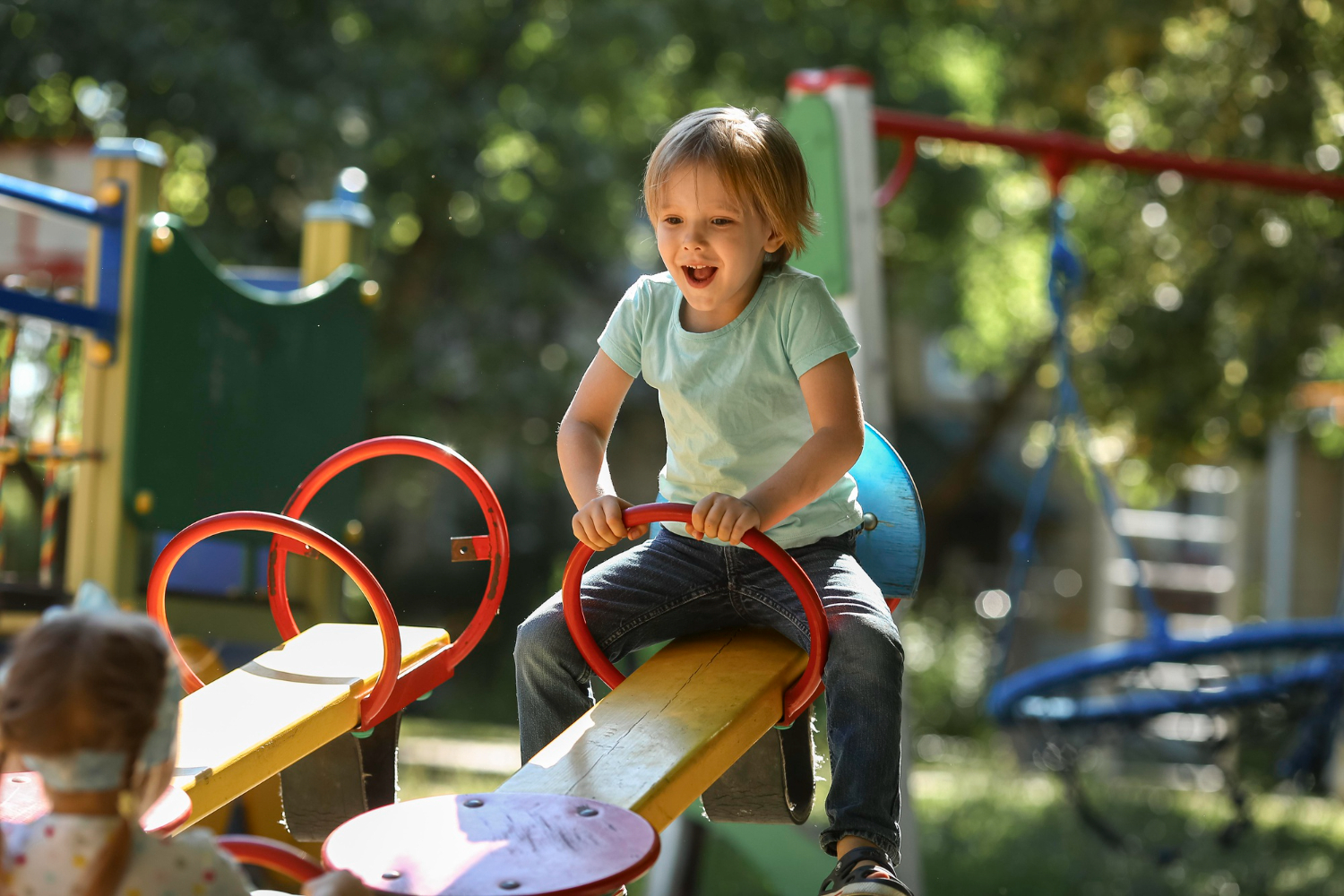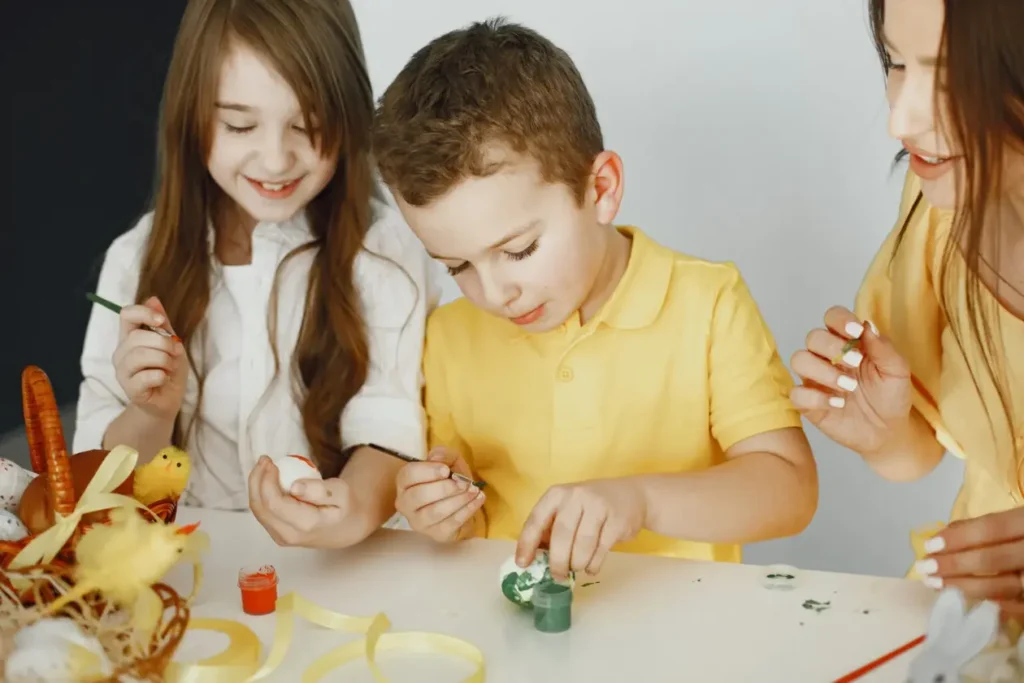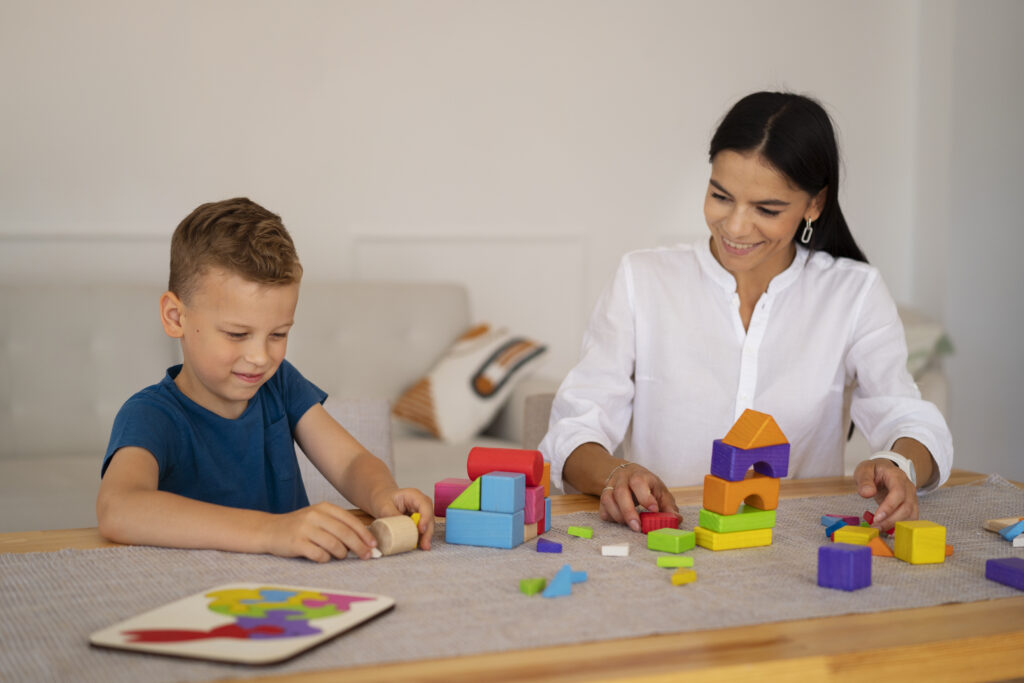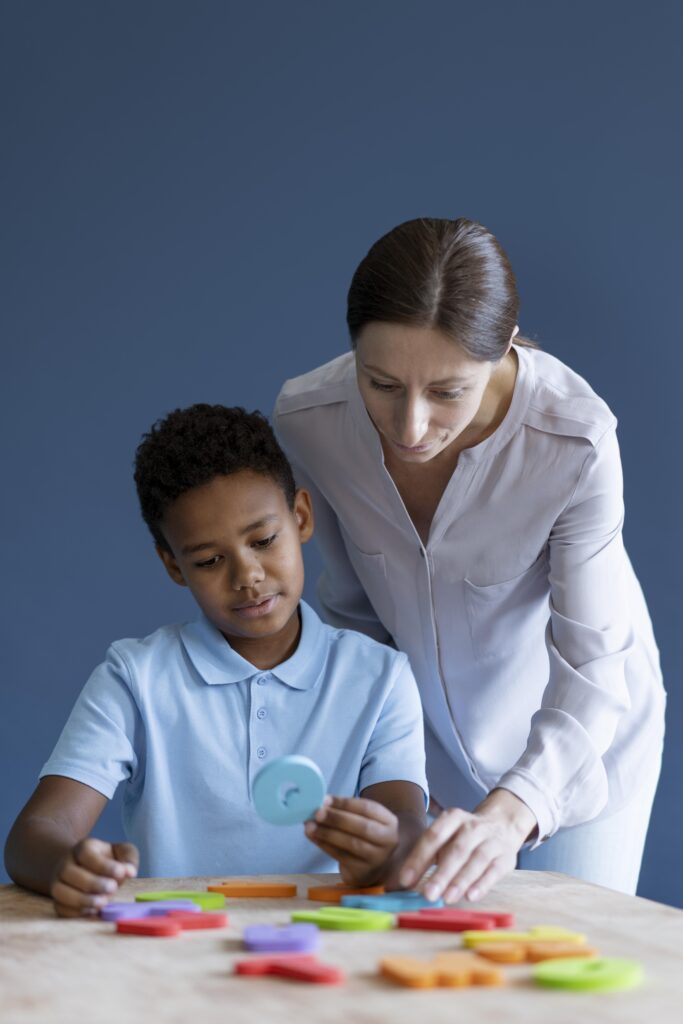In our society we are becoming more and more digitized, and it's easy to forget the magic children create when they interact with nature. The value of outside play is impossible to estimate. It's about laying a strong foundation for a successful, happy, and healthy life, no matter the age! Outdoor play is crucial for …
In our society we are becoming more and more digitized, and it’s easy to forget the magic children create when they interact with nature. The value of outside play is impossible to estimate. It’s about laying a strong foundation for a successful, happy, and healthy life, no matter the age!
Outdoor play is crucial for a child’s early development, shaping essential physical, cognitive, social, and emotional skills. The natural world acts as an active classroom, where movement strengthens the body, exploration sparks curiosity, and interactions foster teamwork and empathy. Encouraging outdoor activities from a young age lays the foundation for a healthier, more engaged, and well-rounded childhood.
1. Physical Development
Outdoor play is more than just having fun outside and getting your children moving; it is a powerful tool for building a strong and capable body. Here’s why:
Gross Motor Skill Enhancement
Running, jumping, climbing, and balancing play directly help your child improve their gross motor skills. These abilities are the basis for future physical activity and overall health. Allow your kids to spend extended time outdoors to explore their interests in different outdoor activities.
Fine Motor Skill Enhancement
Refining fine motor skills is an essential part of childhood development, and outdoor play provides a natural, engaging way to strengthen these abilities. Activities like digging in the sand, stacking pebbles, and building with sticks help improve grip, coordination, and dexterity—skills crucial for writing and drawing. Many children struggle with holding a pencil properly due to underdeveloped fine motor skills, but rather than relying solely on treatments, simple outdoor activities can offer an effective and enjoyable solution. Encouraging kids to explore and manipulate materials like sand and small objects helps them develop stronger, more confident hands while having fun in the process.
Outdoor Activities
Outdoor play is a fantastic way for children to enhance their coordination and balance. As they navigate uneven terrain, jump over obstacles, and engage in physical activities, their bodies learn to adjust and stabilize, reducing the risk of falls and injuries. These experiences not only strengthen their muscles but also sharpen their hand-eye coordination, making everyday movements smoother and more controlled. And of course, every little scrape or “booboo” becomes a proud badge of adventure—a story to share about their triumphs of the day!
Fighting Childhood Obesity
Encouraging outdoor play is a powerful way to combat childhood obesity. With increased screen time and reduced physical activity, children are becoming less active, which can lead to serious health challenges later in life. Regular movement outside—running, climbing, and playing—builds endurance, strengthens muscles, and supports a healthy physical foundation. These activities promote an active lifestyle, reducing sedentary behavior and helping lower Body Mass Index (BMI). Plus, the joy of moving freely outdoors makes fitness feel fun rather than forced, setting up healthy habits for life.
2. Cognitive Development
Playing outdoors is like experimenting in a natural laboratory. It ignites curiosity and fosters cognitive development. Let’s explore how outdoor play helps develop an intellectual mind:
Stimulating Curiosity and Exploration
Nature offers a rich environment for exploration, therefore inspiring children to ask questions and seek answers. Your kids will encounter new textures, smells and sights. They will investigate to satisfy their curiosity.
You can help them build their interests or adopt a hobby like rock collecting, discovering different patterns on leaves, identifying different bugs, etc., when they are outside.
Problem Solving and Critical Thinking
Unstructured outdoor play offers chances for critical thinking and problem-solving. If your child is climbing up the tree, running after a butterfly, or chasing a caterpillar, they will learn cause and effect as well as decision-making. How far should I go? What will happen if I fall down? Should I pick this caterpillar up? Let them connect the dots while you stay close, at a safe distance,, and just observe.
Improving Attention Span and Focus
Scientific research has shown that children’s learning and cognitive development improve from exposure to nature, hence enhancing their attention span and focus. If your child plays with san,d it will not only improve their immunity but also induce mental and physical growth hormones. Their brain will learn to stay focused, and their body will learn to stay calm.
Boosting Creativity and Imagination
Outdoor settings offer a blank canvas for imaginative play, therefore inspiring children to create stories, construct things, and explore their ideas. You can help them by providing the materials that they are looking for to build a bird feeder or maybe a fairy house. Involve yourself in their imaginative play to boost their imagination.
Sensory Exploration
Interacting with different natural elements stimulates all senses, therefore enhancing cognitive growth by diverse sensory input. Outdoor entertainment offers a rich sensory experience, including many textures, sounds, smells, and sights. Development of the brain depends on this sensory input, which also guides children in understanding their surroundings.
3. Social Development
Learning social skills and forming meaningful relationships is an important part of growing up. Kids learn to communicate and practice cooperation when they play outside.
Promoting Cooperation and Sharing
Playing with other children outside helps them learn to cooperate, share, and negotiate, developing important social skills. When children spend good time outside with their friends, they learn to share their feelings and thoughts, which helps them build strong human connections.
Developing Communication Skills
Outdoor play gives children chances to interact with friends, share their thoughts, and improve their language abilities. Interacting with other children and the natural surroundings offers opportunities for language development. Explaining what they observe, hear, and feel increases their vocabulary and communication ability.
Building Empathy and Understanding
Interacting with nature and other children helps them grow to be empathetic and understand different perspectives, foster social connections and lessen feelings of isolation. Research has shown that kids who play outside are less likely to become bullies later on.
4. Emotional Development
A child goes through a roller coaster of emotions on a daily basis, making millions of neurons to understand and navigate emotions. Playing outside in a soothing sanctuary can help develop confidence and resilience. Here’s how playing outdoors can nurture emotional intelligence:
Reducing Stress and Anxiety
The stress and anxiety levels among young children have visibly increased since COVID, making it more important than ever to find natural ways to support their mental well-being. Spending time outside has a calming effect—it lowers stress hormones, encourages relaxation, and allows children to reset emotionally. By gradually expanding their outdoor exploration, they build confidence, feel a sense of control, and develop resilience. Daily exposure to nature helps them navigate their emotions in a healthy way, fostering balance and emotional strength.
Building Emotional Resilience
Facing challenges and overcoming obstacles outside with other kids helps them grow emotionally resilient and develop coping skills. When your kids are playing outside ,let them sort out their own conflicts to make them feel emotional freedom and confident in their social abilities.
Enhancing Self-Confidence and Self-Esteem
Outdoor play is a wonderful way for children to develop confidence, independence, and a sense of wonder. Nature provides endless opportunities for exploration, problem-solving, and creativity, all of which contribute to their emotional and social growth.
Promoting Emotional Regulation
Outdoor play helps children in emotional regulation, behavior control, and developing self-control. Children who play outside explore, experiment, and understand their limits.
Outdoor Play for Teens and Tweens: Ongoing Development and Independence
The benefits of outdoor play go far beyond childhood. Teenagers also get advantages from time spent outside.
Physical Fitness and Health
Outdoor activities such as hiking, biking, and sports help maintain an ideal weight and foster physical fitness. Instead of running on a treadmill, running outside in nature will have a better effect on their fitness and health.
Better Mental Health
Spending time in nature helps your child to reduce frequent adolescent stresses, anxiety, and symptoms of depression. The soothing and calming effects of nature help your kids to regulate their hormones.
Social Connection
Engaging friends in team sports or outdoor activities increases social relationships and lessens isolation. Developing good behaviors outside could result in a lifetime of healthy practices. Kids can make real-life friends and develop good interpersonal skills.
Fostering Independence
Outdoor activities like hiking or camping help your children develop responsibility and independence. Outdoor experiences help increase environmental awareness and strengthen a closer relationship with nature. That will result in more confident and independent teens.
Problem-solving and Critical Thinking
Navigating the outside environment and overcoming obstacles improve critical thinking and problem-solving abilities. Not only that when tweens and teens try to resolve their conflicts with peers and friends, they learn important life lessons.
The Unquestionably Positive Effects of Outdoor Play (Across All Ages)
Let’s explore the several advantages of outdoor play at a deeper level now. It’s not only about fun and games but about encouraging holistic growth and development.
Boosts Immune System
Natural surroundings and bacteria allow your child’s immune system to be strengthened. Studies point to children who spend more time outside having fewer allergies and diseases. Research published in the ‘Journal of Allergy and Clinical Immunology’ indicates that early childhood exposure to natural surroundings greatly lowers the chance of allergy illnesses development.
Improves Imagination and Creativity
Nature is the best playground available for imagination. A puddle becomes a mystical lake, a cardboard box becomes a spacecraft, and a stick becomes a magic wand. Unstructured play of this sort stimulates imagination and problem-solving.
Reduces Stress and Anxiety
There is much evidence of nature’s soothing influence. Spending time outside helps your children relax and reduces cortisol levels, the stress hormone. Environmental psychology studies repeatedly reveal that children’s feelings of anxiety and despair are lessened by being surrounded by green areas. Outdoor play helps children assimilate and react to sensory stimuli, so it involves more senses than TV.
Improves Sleep Quality
Physical exercise and daytime natural light exposure assist control of sleep patterns, therefore improving night sleep quality. Children who spend more time outside have higher sleep quality, according to a study in ‘Sleep Health.’
Vitamin D Production
Strong bones and teeth depend on vitamin D, which is naturally produced by sunlight. Many children lack this important vitamin, hence, outside activity is a quick approach to raise their levels. Children’s muscles are engaged and strengthened by activities including swinging, biking, skateboarding, and scootering.
Respect for the surroundings
According to research 87% of those who often played outside as children respected nature as adults, and 84% of them thought environmental care should be given top importance. Children who respect natural surroundings tend to pay more attention to a sustainable future.
Emotional Regulation
Outdoor play lets children explore a spectrum of emotions and learn how to manage their moods, control their stress levels, and calmly address difficulties. Outdoor environments give chances to learn new information and abilities using play.
Children’s Outdoor Play: Giving It Top Priority
So, how can we make outdoor play for children a top priority?
Limit Screen Time
The first step that you should take to encourage outdoor play is to set a routine around screen time. Sit together and discuss outside activities that your kids can opt for. Start small! You can start with maybe 30 minutes initially and gradually increase outdoor time as your children start showing interest in the natural environment.
Plan Outdoor Activities
Plan park visits, picnics, and wildlife hikes. Let your children explore and play free from too much adult involvement. Give them freedom to run around and explore nature close. As you and your children start becoming more comfortable, you can allow them to increase their distance till a safe distance.
Allow them to share their ideas of outdoor activities so that they can enjoy the freedom and decision-making power. Playing with water in your backyard is always the most fun activity that kids love doing.
Participate in Nature-Based Programs
Search for neighborhood outdoor playgroups or nature centers. Make sure your children are dressed according to the temperature so that they feel comfortable when on a trail hunt or when they become little paleontologists. (Pretending to dig dinosaur fossils right in your garden!)
Accept the Mess!
Yes, outdoor play can be messy. But that’s part of the fun! Mud pies, grass stains, and sandy clothes are signs of a well-lived childhood (and teenage). Let your children explore the natural environment and get dirty without thinking twice.
To Sum Up
You cannot underestimate the value of outdoor play. A child’s healthy development depends on it, which promotes physical, cognitive, social, and emotional development at every age. So let’s get outside, away from screens, and let our children discover the wonder of the natural world.
You will be amazed at the positive impact it brings to their life. Every puddle leaped, every tree climbed, and every insect seen offers a priceless lesson in growth and exploration. Allow your kids to inherit a lifetime of outdoor experiences.




